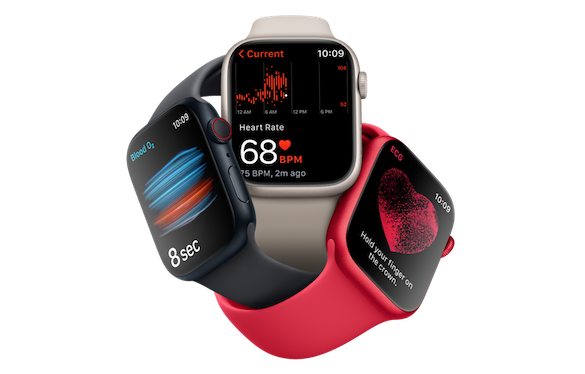Focus oncology development on the patient, manage trial complexity, and increase predictability and speed.
By now it is abundantly (if not uncomfortably) clear that the impact of COVID-19 will reverberate in our industry for years to come. The pandemic is proving to be not only an immediate crisis, but also an inflection point in healthcare; almost nothing will completely return to its pre-COVID ‘normal.’ So it’s time to start considering the impact of COVID-19 on the future of research, treatments and innovations.
Oncology is a case in point. While COVID-19 is a risk for everyone, we know that cancer patients are particularly vulnerable; their already-weakened immune system puts them at greater risk of complications from this virus. Compounded by general stay-at-home orders restricting patient movements, the ability and willingness for patients to see doctors (for either diagnosis or treatment) is a significant concern for sponsors and investigators running oncology trials. Already in the US the IQVIA Institute for Human Data Science estimates that COVID-19 has resulted in a 60-80% drop in cancer screenings, which could translate to 67,000 fewer diagnoses of cancer.
To determine how big an impact the virus is having on oncology trials, IQVIA partnered with the Cancer Research Institute, a US non-profit cancer research organization, to survey investigators and key opinion leaders (KOL) across the US, Europe, and Asia. The results of the survey, which explore how the crisis is impacting ongoing and future oncology clinical trials, were published in Nature Reviews Drug Discovery. To learn more, read Impact of COVID-19 on Oncology Clinical Trials. Here’s what we learned.
Not surprisingly, immediate patient safety is one of the top concerns for respondents, and its impact on both enrollment and ongoing patient care. The majority of sites report moderate or high delays and canceled patient visits as a result of COVID-19. We found that survey respondents are particularly concerned about trials involving cellular and gene therapies, or intravenous administration, which require extensive on-site visits.
Of course, any delays or changes to current and future oncology studies impact hundreds of thousands of patients worldwide. If the anticipated delays aren’t addressed, it could add many months to the drug development lifecycle and delay new treatments to waiting cancer patients.
In response, sponsors and investigators are re-examining their trial strategies, and seeking new ways to protect patient safety while enabling trial data to be collected and monitored as required. Many are considering virtual trial models as part of their approach.
Telemedicine was cited as the leading strategy respondents are using or considering to address the impact of COVID-19. More than half of respondents also cited remote monitoring, shipping oral drugs directly to patients, and reducing site visits.
All these solutions enable sites to continue providing consistent patient care and monitoring, while reducing virus-related risks, and addressing the fact that many sites are temporarily closed. Where patients still require face-to-face care, investigators are looking at ways to leverage local labs, home health nurses, and visiting phlebotomists to closes those gaps.
Regulators are on board
Virtual trial solutions have been available for years, and many regulatory bodies are encouraging their use in response to COVID-19. Along with reducing contact risks, these models can provide an easier and more patient-friendly experience, which could help alleviate delays in recruiting for future trials.
Oncology trials can be very time-consuming for patients, which makes the decision to participate complicated for patients and their caregivers -- even prior to concerns about COVID-19. However, if the trial design is more patient-centric, with some visits and treatments occurring in patients’ homes, it may make participation more appealing, while expanding the reach of the trial to a broader population. It’s a great example of how COVID-19 may prove to be a catalyst for positive change in the future.
Sponsors are also seeing the added benefits that virtual elements bring to their crisis management planning. Being able to treat immunocompromised patients in their homes or through local healthcare facilities addresses concerns about patient exposure to COVID-19, and means trials could quickly shift course in the event of a future crisis, even if sites get shutdown.
Inspiration for innovation
COVID-19 has shined a spotlight on the vulnerability of oncology patients, and the need for sponsors and investigators to add flexibility in their study plans.
When this pandemic is over, we anticipate that many sponsors will continue to use virtual trial elements for oncology research to accelerate enrollment and improve the patient experience.
As these strategies become more mainstream, they will likely inspire new innovations across the oncology trial landscape. These may include expansion of visiting nurse and phlebotomist programs, and investigational drug courier services. We also expect an increase in development of oral oncology medications over intravenous treatments to reduce reliance on site visits; and advances in imaging technology that will allow for remote or mobile patient scans.
The oncology research environment has delivered dozens of life changing treatments to market in recent years, and the flood of investment in new research suggests the breakthroughs will continue to come. But this research is dependent on patients’ willingness and ability to safely participate in clinical trials.
This virus is compelling clinical researchers to challenge their own assumptions about what an oncology trial requires. Virtual elements and a more patient-centric approach in clinical trials can improve the patients’ experience and hopefully their willingness to take part into future studies.
Highlights of Investigator and KOL Survey Results
- Nearly 60% of investigators report that the COVID-19 pandemic has had “moderate” or “high” impact on patient visits being delayed or cancelled.
- 73% of investigators were avoiding or planning to avoid immunosuppressive treatment regimens and 64% were shipping or planning to ship oral drugs directly to patients’ homes
- New approaches for patient assessment include telemedicine (82%) and alternative locations (73%)
To learn more, read Impact of COVID-19 on Oncology Clinical Trials in Nature Reviews Drug Discovery.
Learn More
Trends in Clinical Development for PD-1/PD-L1 Inhibitors
Article reprint from Nature Reviews Drug Discovery
Clinical Risk Management and COVID-19
How sponsors can adapt to evolving regulatory guidelines and continue vital research during the pandemic
Related solutions
Specialized expertise and customized solutions across 14 therapeutic centers of excellence, including oncology, GI/NASH, pediatrics, neurology and rare diseases.

























